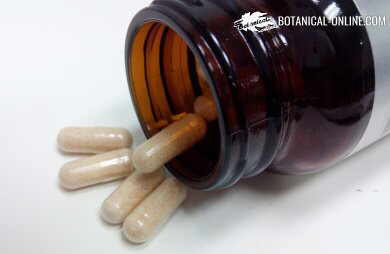Contents
Toxicity of vitamins
Can vitamins be toxic?
It has been proven that officially recommended doses can be exceeded at some length if it is intended that vitamins have a therapeutic effect. However, the abuse of vitamins can cause damage to health. Never take supplements in large quantities, except by the consent of the specialists.

Vitamin supplements
Which vitamins are the least dangerous?
B complex vitamins or vitamin C, being water soluble, generally show no toxicity problems because the excess of them is excreted in urine. But even vitamin C in doses of more than 2000 mg daily is harmful because it has been proved that it can produce kidney stones, headaches, diarrhea, or trouble for sleeping.
Within the group of vitamin B, we must be cautious with vitamin B6 and folic acid. Too much vitamin B6 (over 2000 mg daily or prolonged use of 200 or 300 mg daily) may cause nerve problems and limb stiffness with loss of sensation in hands and feet. Too much niacin supplements can affect the liver and make skin redden. Too much folic acid may hide a lack of vitamin B12 or cause epilepsy fits in those with this disease.
Vitamins B1, B2, B1 and biotin have no symptoms of intoxication.
Which vitamins can be the most toxic ones?
We must be extremely careful with fat-soluble vitamins (A, D, E and K), since these are stored in the body and the excess is not removed as in the ones mentioned above.
Vitamin A, when taken in the form of beta carotene from food, is not toxic. In any case it may produce a state called hipercarotemia, characterized by yellowing of the skin, which disappears when one stops the consumption of foods containing large amounts of carotenoids. When ingested through supplements, if the doses are very high and taken for long, about 25. 000 IU and on an permanent basis, it can be toxic, causing hypervitaminosis, which manifests as muscle weakness, blurred vision, hair loss, poor condition of the skin, diarrhea, nausea, cirrhosis, weight loss, fatigue…, etc. Vitamin A supplements should be provided to pregnant women to avoid fetal anomalies.
Vitamin D obtained from sun exposure is eliminated without problems. High doses of supplements (about 1000 0 1200 IU) taken for half a year can cause gastrointestinal problems, headache, loss of appetite, fatigue, arrhythmia, bone calcium loss and calcium accumulation in muscle tissue.
Vitamin E has very little toxicity. However, there are a number of circumstances that require us to take precautions: Patients who have bleeding problems, such as hemophiliacs or those with bleeding peptic ulcers, can not take supplements of this vitamin. We must be prudent in the administration of this vitamin in patients taking anticoagulants like heparin and warfarin because it can fluidify blood too much, so they would bleed too easily. Also patients who will undergo an operation should abandon the ingestion of these supplements one month before surgery. High doses prevent that vitamin A is absorbed properly. Pregnant or nursing women should not exceed the RDA. In general, even with not contraindications, one should consult the doctor if we are sick or want to take a high intake of this vitamin.
Vitamin K taken through vitamin supplements in high doses can cause increased sweating and flushing. It strengthens the power of anticoagulants and increases the chances of bleeding wounds.
![]() More information about vitamins.
More information about vitamins.








